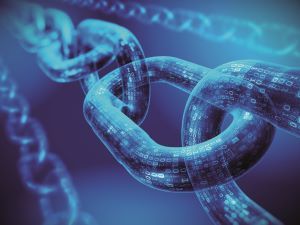The focus of “DIBICHAIN” is the collection of product life cycle data in order to make the product development process fair, secure and economical. The basis is the block chain model, in which data is stored in a decentralized manner and without sovereign rights. However, current block chain models are usually too slow to scale to large data volumes. This is where the research
in the “DIBICHAIN” project starts.

Software demonstrator
”DIBICHAIN” aims to investigate the application of blockchain technology for the digital representation of product cycles in contrast to other distributed ledger technologies (DLT).
First of all, the main differences between the individual DLTs will be highlighted in order to subsequently evaluate the suitability of the individual technologies for the selected case study. The aim is to deepen the knowledge base for the application of a block chain for a circular economy in order to enable further and more indepth research projects that will open up the full potential for DLT in this context. A software demonstrator is to be developed, which contains the following application scenarios using the case study of the “Bionic Partition”:
• (Back-)tracing of selected materials, from the extraction of raw materials to their return to material cycles.
• Ensuring compliance with social and ecological standards of the entire product life cycle.
• Blockchain for integrated life cycle analyses and for use as a basis (data backbone) for sustainability driven design applications.
• Clear identification and traceability of products of theentire product life cycle.

Innovations in decentralized data storage
Traditional data management currently works via centralized servers. If a user uploads an image to his social media page, this image is stored by a centralized server at a location usually unknown to the user. If the user now wants to delete his image, he must trust the server provider not only to make the data unreachable, but also to actually delete it from the server. Since the modern world and also the so-called Internet of Things would no longer function without server data storage, it is almost impossible to circumvent this completely. Decentralized storage, i.e. distributed over many individual users instead of on a single server, would be one approach to solve the problems mentioned above.
The potential of DLT can currently only be guessed at. The application of DLT would be a refinement of the not yet fully explored “Web 3.0”. The project as a whole is being worked on according to the waterfall model, while the software development is carried out using the socalled scrum method. Scrum is an agile project management method, which is primarily used in software development.
Results (Status June 2022)
To meet the basic idea of transparency across the entire supply chain, while at the same time taking data protection into account and protecting the intellectual property of the participating companies, a modular architecture has been designed. The level of detail of information to be shared is up to the participant itself. At the same time, the participants in the supply chain are also not disclosed.
With the help of the designed architecture, the stored information can be additionally enriched with further information, which can be requested and shared on demand with other participants in the supply chain. However, this is done only upon request and approval of the sharing party.
In our software demonstrator, the following process is tested as an example:
- identification of a product
- request to the manufacturer of the product for LCA information
- provision of a LCA data set peer2 peer after approval by the originator.
The LCA information can later be replaced or supplemented by other data sets, or even documents, depending on the type of request on the solution.
The software demonstrator under development serves as an independent, immutable and trustworthy communication solution for the entire supply chain to obtain reliable and integrity information about products. This serves
- product transparency
- recycling, as component manufacturers can be contacted directly to request material or dismantling information.
- more sustainable product development, as especially through the exchange of LCA information the improvement potentials regarding the environmental impact can be assigned very well to life cycle instances.
The innovation team
The five participating companies each contribute their own expertise to the project, some of which has been acquired over many years, in order to achieve the best possible results. This knowledge includes classical software development, blockchains, recycling management, ecology and product development. The project is divided into five work packages. The administrative part is followed by focus groups, analyses and finally the development of the software and its evaluation.
The goal of the project partners Airbus, Altran, Blockchain Research Lab, Chainstep, iPoint is not only to highlight the differences of current DLTs, but also to design a new technology that can be evaluated in a final application scenario, the software demonstrator. Thus, “DIBICHAIN” aims to develop a technology that can be used by companies worldwide for modern, decentralized data storage.
Publications
Project flyer of the funding measure (German / English) (March 2021)
The project flyers offer an insight into the contents and goals of the ReziProK projects and present first results in each case.
Project sheets of the funding measure (German) (August 2019)
The project sheets provide a brief overview of the individual projects and their goals.
Contributions to the ReziProK Transfer Conference in June 2022
Poster (German) (June 2022)
Presentation (German) (June 2022)
Contribution to the ReziProK Kick-off event in December 2019
Presentation German (Dezember 2019)
Picture credits: ©Sashkin - stock.adobe.com; Airbus /Altran
